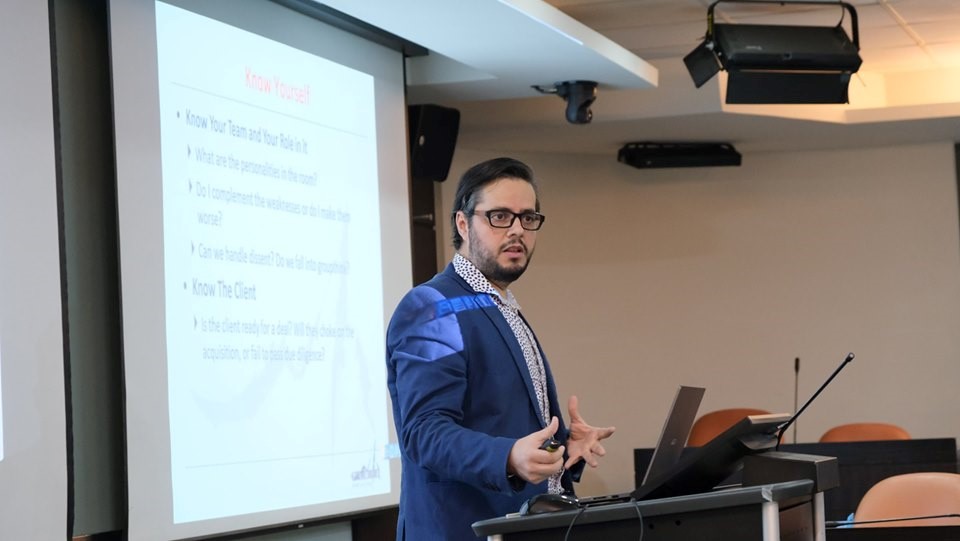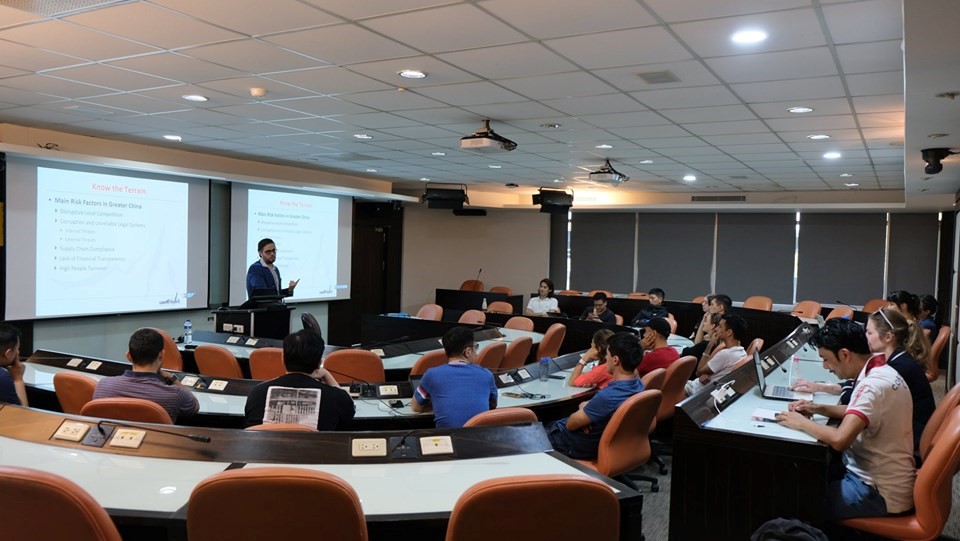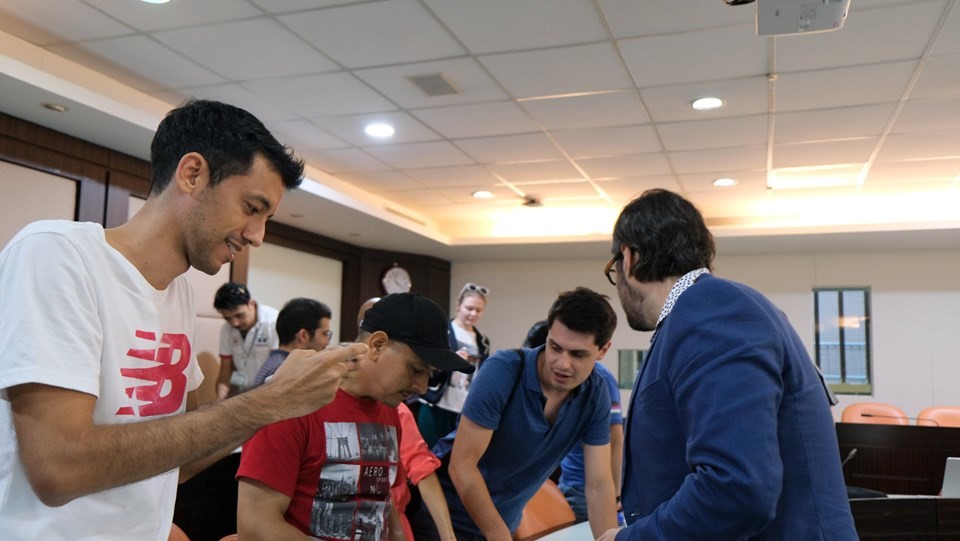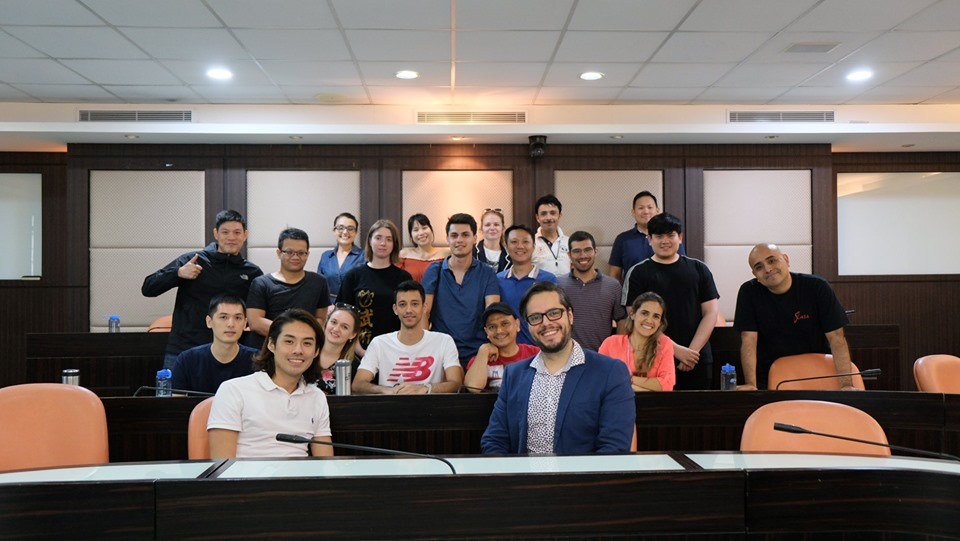He first introduced his background. After having a chance to study Chinese language in Taiwan in 2003, he caught another opportunity to join the NCCU IMBA family. During his studying in the program, he got to know the business marketplace about China through a guest lecture in a class, Cross Borders Strategic Alliance and found the topic interesting. After a few weeks through his network developed from the courses, his classmate told Juan Carlos his boss was interested in his resume. That was the trigger point for his joining in the Pamir Law Group until today. The company, Pamir is an international law and business consulting firm based in Asia with office in Taipei and China. It has wide-ranging record of providing legal and business solutions in different industries. Through this channel, Juan Carlos gained and practiced his knowledge in dealing with Greater China.
His presentation was fascinating. “If you know the enemy and know yourself, you need not fear the result of hundred battles…”, an idea developed by Sun Tzu (孫子, a Chinese general, military strategist), was used as his framework to explain the importance of knowing oneself, knowing one’s opponent and knowing the terrain. He emphasized the successful of closing a deal was undertaking an insight and thorough analysis of who, what and where before going to the negotiation table or discussion broad.
In terms of knowing oneself, means knowing your team’s personalities and your role in the discussion room such as how to complement the weakness of the team to handle dissent. At the same time, it was necessary to distinguish whether your client was ready for a deal or not, to prevent the possibility of clogged up for example in an acquisition. In addition, understanding the organization structure of the client like company culture, leadership style and so on helped to get ready to enter China. Then, he explained the barriers to success in Greater China included lack of understanding of the local market, bias, inability to communicate effectively, ingrained habits and inflexibility and the fears of visiting Greater China. Giving audiences some factual examples of the myth.
With respect to knowing the terrain, that is the legal and business environment, he dug deeper into the main risk factors in China. The disruptive local competition referred to the saturated number of entrepreneurs in China. There were many talented people and great technology. Foreign business should consider if it has absolute competitive advantages to compete with the locals. Also, the corruption and unreliable legal systems, supply chain compliance, the lack of financial transparency and high people turnover should be taken into account.
He then shared the key elements of a successful deal = self-awareness + right partner + right place/ time + win-win mentality. He added, “these do not guarantee success but are a good starting point”.
For knowing one’s opponent which means the counterparty, selecting a correct partner was critical in a deal because a great deal with the wrong partner could be disastrous for the organization. He mentioned a case of a potential investor approached his clients for an attractive deal. Luckily, he helped the client to run through a deep background check of that investor and found out the investor’s company was actually not existed! At the end of presentation, he explained the “Guanxi” mapping in China and some checklist for preparing, during and post-negotiations, contained the cultural values and the fundamental differences of the negotiation style between Western and Chinese countries.
It was grateful to have Juan Carlos sharing how he seized the network developed in the IMBA Program to obtain his future career, also his insights and success stories from of cross border deal-making in Asia.

Juan Carlos was opened to share real situation and challenges faced in doing business in Greater China.

Participants were proactive and raised a lot of questions about the topic.

Networking time after the wonderful Talk.

Thank you so much for the valuable sharing to the IMBA family!




